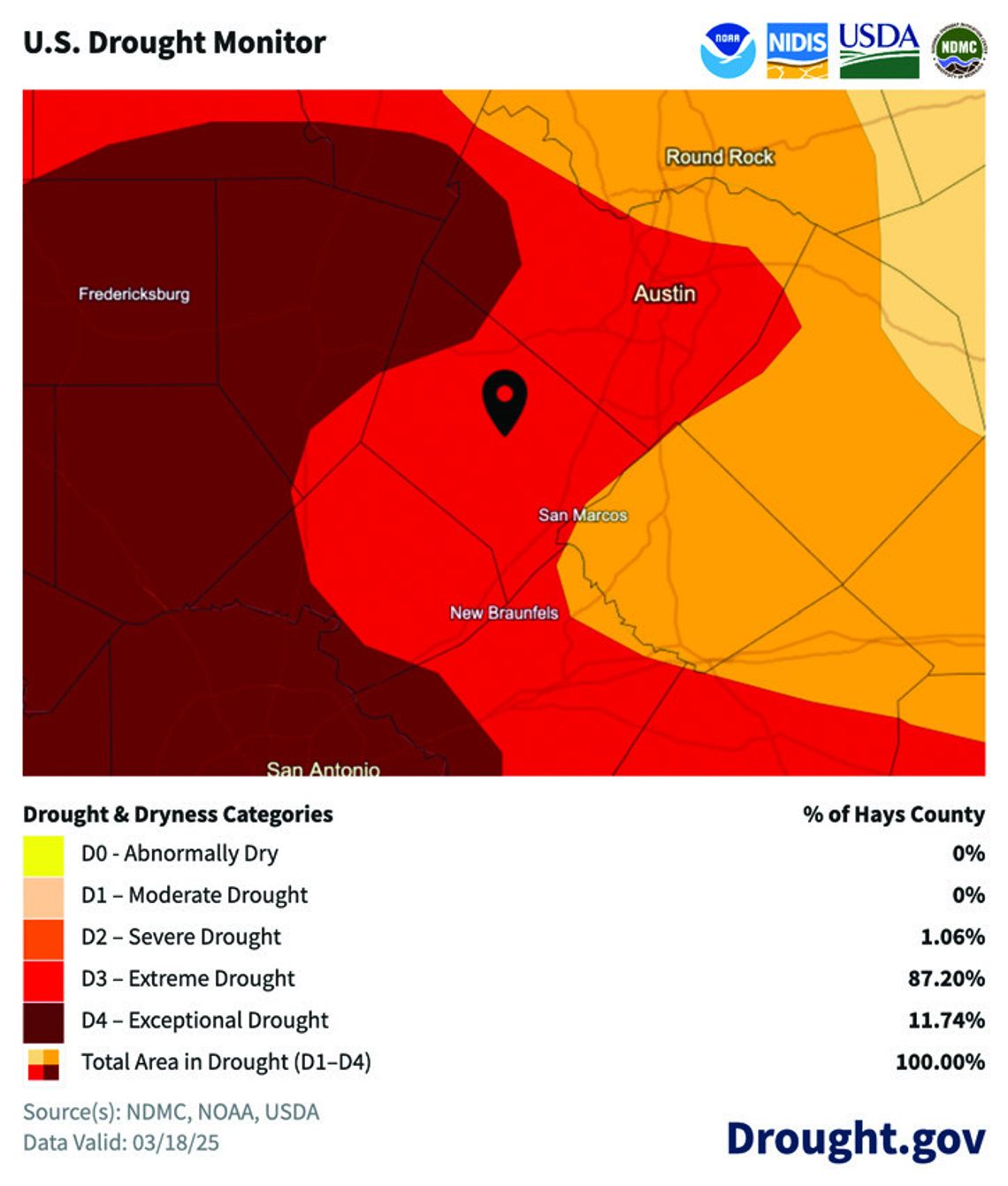Two Texas bills, Senate Bill 2660 and House Bill 2812, filed within the last two months, could have far-reaching impacts on the future of water in Hays County and the Wimberley Valley.
Introduced last month by Republican Representative Carrie Isaac, is House Bill 2812 that seeks to exclude public water supply wells from the regulatory oversight of the Hays Trinity Groundwater Conservation District. Public wells would not be subject to the district’s monitoring, permitting processes or metering requirements.
The new provision would specifically exclude public water supply wells from the District’s regulatory oversight. Currently, wells producing less than 25,000 gallons per day and used for domestic purposes by single private residential households and wells used for conventional farming and ranching activities, are not subject to District’s monitoring. The bill, if passed, is set to take effect on September 1. It is currently before the Natural Resources Committee.
“This would be a disaster for the springs that feed Jacob’s Well and other regional water sources,” said Executive Director David Baker of the Watershed Association. “It takes all the controls off of managing groundwater resources. It is pro Aqua Texas and anti-groundwater conservation. We hope she withdraws this bill.”
Representative Carrie Isaac in a response to the Wimberley View said, “I have been fighting against overreach from the Hays Trinity Groundwater Conservation District (HTGCD) since 2019. Their ongoing efforts to regulate beyond reason— including denying permits to water providers, proposing new fees, metering private wells, and even seeking to pay their director with public funds—represent an unacceptable threat to property rights and water access in Hays County.” To read the rest of her response, see below.
When asked what the Hays Trinity Groundwater Conservation District thought about H.B. 2812, Charlie Flatten, General Manager, said, “We have no comment.”
Introduced this month in the Senate by Republican Charles Perry, the Chair of the Senate Water and Rural Affairs Committee, is Senate Bill 2660, that also relates to the Hays Trinity Groundwater Conservation District.
In this bill, it authorizes the Conservation District to place all public water supply wells and commercial wells in Hays County under the same groundwater production fee structure authorized by the legislature in the 2023 session for the Barton Springs district in the eastern half of Hays County.
When asked about SB 2660, Flatten said, “SB 2660 provides the tools needed to protect private and permitted water wells from predatory drillers without harming the rights of existing well owners. The District thanks Senator Perry and the Hays County community for its widespread support for SB 2660.”
According to Flatten, Senator Perry authored and filed SB 2660 to provide western Hays County’s water well owners the same standard protections enjoyed by landowners in groundwater conservation districts across the rest of the state.
Groundwater conservation districts have been created in many parts of Texas to allow local citizens to manage and protect their groundwater. In 2001, local citizens created the Hays Trinity Groundwater Conservation District.
Like every other groundwater conservation district in Texas, it is charged with preserving, conserving and protecting the public and private water wells that the community relies on. It is also charged with enforcing the Texas Water Code and protecting natural treasures that rely on healthy aquifers.
The District’s creation was successful but, according to Flatten, “was limited by powerful special interests that successfully inserted language to protect their interests over local private property rights. The result has been a District that does not have the tools or funding as every other District in the state. It also has contributed to the low flows that our springs and rivers are experiencing.”
Full statement from Rep. Carrie Isaac
I have been fighting against overreach from the Hays Trinity Groundwater Conservation District (HTGCD) since 2019. Their ongoing efforts to regulate beyond reason— including denying permits to water providers, proposing new fees, metering private wells, and even seeking to pay their director with public funds—represent an unacceptable threat to property rights and water access in Hays County.
That’s why I filed House Bill 2812, which removes HTGCD’s authority over water providers already regulated by the Public Utility Commission of Texas (PUC). These providers are fully accountable to the PUC, which ensures responsible service, guards against price gouging, and protects consumers. Denying them permits doesn’t just create bureaucratic chaos— it risks cutting off water to thousands of families and businesses. That is not a solution. I support legislation to strengthen infrastructure, including desalination and brackish water development—critical steps toward long-term water security.
In contrast, the HTGCD through Senate Bill 2660 would expand their power to levy new groundwater production fees—up to 38 cents per 1,000 gallons—on private well owners. It also repeals critical safeguards in state law that currently protect domestic and agricultural wells from metering, permit requirements, and property inspections without consent. These are unnecessary and invasive measures that I strongly oppose.
As a founding member of the Texas House Water Caucus I remain focused on real water solutions and have filed numerous pieces of legislation addressing our water issues. Access to water is not a luxury—it’s a necessity. I will continue to defend our water supply, protect property rights, and oppose unnecessary government overreach. Hays County families deserve solutions—not threats to their water.
— Rep. Carrie Isaac








